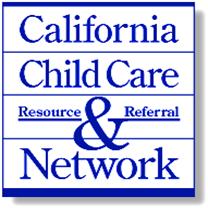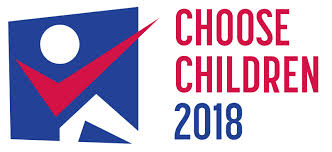 |
|
|
CAPPA's
2017-18 Board of Directors
|
|
Rick Richardson
Child Development Associates
Karen Marlatt
Valley Oak Children's Services
Beth Chiaro
Child Care Resource Center
LaVera Smith
Supportive Services Fresno
Martin Castro
Mexican American Opportunity Foundation
Jeffrey Moreira
Crystal Stairs, Inc.
Public Policy Co-Chair
Phillip Warner
Children's Council San Francisco
Tina Barna
Choices for Children
Abby Shull
YMCA Childcare Resource Service
Amanda Al Fartosi
KinderCare Education
Jeanne Fridolfs
Community Resources for Children
Mike Michelon
Siskiyou Child Care Council
Marco Jimenez
Central Valley Children's Services Network
San Mateo 4Cs
Michelle Graham
Children's Resource & Referral of Santa Barbara County
Joie Owen
Glenn County Office of Education
Denyne Micheletti Colburn
CAPPA CEO
|
|
|
EESD/CDE, DSS & CCLD Updates
|
|
March 9, 2018
Webinar Announcement: Technical Assistance for CDMIS
The EESD will host a webinar on Thursday, March 15, 2018, to provide technical assistance for the Child Development Management Information System (CDMIS).
February 12, 2018
Bridge Program Monthly Technical Assistance Calls
DSS will be hosting technical assistance calls on the last Tuesday of each month from 1-2 pm, beginning in February. These calls will provide opportunities for counties to share best practices and challenges as they implement the Bridge Program. CDSS staff will also be available to answer questions and address concerns. If you have specific questions or suggestions for topics in advance of the calls, please send them to
January 31, 2018
12-month Eligibility Regulation Input:
The Budget Act of 2017 requires the CDE to convene a workgroup to solicit input for developing regulations regarding the provisions of California Education Code 8263(h), 12-month eligibility. In order to garner as much input as possible, the EESD Policy Office has opened an e-mail address to gather input/recommendations from any interested party. Please e-mail your input/recommendations to
[email protected]. This e-mail address will be available until the close of business on Wednesday, February 28, 2018.
A manual letter
(
EAS-18-03
) containing amendments to the California Department of Social Services' Eligibility and Assistance Manual has been uploaded onto the Department's website.
January 24, 2018
The California Department of Social Services has scheduled a public hearing for March 14, 2018, to receive testimony on the CalWORKs Income or Household Composition Reporting, ORD No. 0717-18, regulations package. Details can be found by clicking
Here.
January 20, 2018
A manuel letter containing revisions CDSS' Eligibility and Assistance Standards Manual has been uploaded onto the Departments' website.
Click here
for more information.
January 12, 2018
CDSS has scheduled a public hearing for February 28, 2018, to receive testimony on the "CalWORKs Program: Subsidized Employment, Approved Career Pathways and Post-Aid Services" regulations package.
|
|
|
|
Is Your Organization Hiring?
Post your job announcement here for thousands to see!
There is no charge for CAPPA members.
Non-members will be charged a fee of $75.
International Institute Los Angeles
Pomona Unified School District- Child Development
Children's Council San Francisco
Solano Family & Children's Services
North Coast Opportunities-Lake County
Child Care Coordinating Council, Inc. of San Mateo County
Go Kids, Inc., Gilroy
Child Development Inc. is Hiring! See the Recruitment Flyer
Here.
|
CAPPA Member Benefits now available on the Members Only website:
All new AP branding templates
from CAPPA's Branding Committee are now available for CAPPA members.
The Family Factor: A Community View to Father Engagement
Save money when you join TechSoup! TechSoup is a nonprofit that helps other nonprofits. Save hundreds of dollars on products like Microsoft Office, Antivirus software, a number of fundraising programs, and much more! Signing up to become a TechSoup member is the first step toward getting product donations. Once you sign up, you can see the donation programs your organization is eligible for.
Sign up
and check it out today! Once you've signed up as a TechSoup member, you can register your organization and get started requesting donations.
|

AmazonSmile is a simple and automatic way for you to support CAPPA every time you shop. When you shop at
smile.amazon.com
,
you'll find the exact same low prices, vast selection and convenient shopping experience as Amazon.com, with the added bonus that Amazon will donate a portion of the purchase price to CAPPA.
If interested, you can also sign up for an Amazon Business account for free. This is similar to a Prime account and will give you free 2-day shipping. You can learn more
Here.
Please let us know if you have any questions. Thank you for your support!
|
The CAPPA Board has made it a priority to support our field with a coordinated calendar to note upcoming statewide conferences, federal conferences of relevance, CDE and DSS stakeholder meetings and legislative and budget deadlines and hearings.
-
First 5 Advocacy Day and 20th Anniversary
-
4Cs of Alameda County offering Tax Preparation Services
Volunteer Income Tax Assistance (VITA) provides free tax preparation services for eligible low and moderate income families. February 1st-April 12th. Learn More Here.
-
Child Care Aware of America 2018 Symposium
April 17 - 20
-
-
If you have news to share or an event you want added to CAPPA's website Calendar,
email us!
|
|
|
CAPPA Monday Morning Update Partner
|
|

Our Monday Morning Update supports our Early Learning & Child Care field with timely information about what is going on in California and nationally; as well as dates to be aware and upcoming events.
Our weekly (50 times per year) Monday morning distribution is to more than 4,000 federal and state local agencies, resource and referrals, contractors, legislators and their staffs', centers, parents, providers, state departments and advocates.
To help support the continuation of this resource and or advertise in the Monday Morning Update, click
HERE.
You can also make a donation to CAPPA and CAPPA Children's Foundation
The Children's Foundation is a non-profit organization (501(c)3), Taxpayer Identification Number is
03-0521444. Your generous donation is tax deductible.
|
|
 |
|
 |

Increase for Child Care Funding at Risk
Almost 3 months into the New Year and exciting things have happened! Last month, Congress passed a budget deal that doubles the Child Care and Development Block Grant to $5.9 billion. CCDBG, which helps pay for subsidized child care for families struggling to make ends meet, currently serves 1.4 million children nationwide, the lowest number in history.
|
California Assembly and Senate floor sessions will convene on Monday and Thursday this week.
Click here
to be directed to CAPPA's website to see all of the legislation that has been identified to be of interest to our field. You can find fact sheets and sample letter templates when available. On this page, CAPPA will also note legislative hearings of interest to our field. To track and/or review legislation or to create your own tracking list,
click here.
Here is a small sample of bills that have been identified as being of interest to the child care and early education field. You can find a more expansive list on
our website.
-
AB 1883 (Weber) Human Services: child care and development services: food assistance programs.
*CAPPA & Western Center on Law and Poverty (WCLP) cosponsored bill.
This bill would clarify that military basic allowance for housing (BAH) of a person who is on state or federal active duty, active duty for special work, or Active Guard and Reserve duty in the military not be considered income for purposes of determining eligibility for child care and/or for CalFRESH. This change is consistent with the IRS that also lists BAH as one of the tax-exempt military allowances not considered as earned income when determining eligibility for the Earned Income Tax Credit, the Special Supplemental Nutrition Program for Women, Infants and Children (WIC), Head Start and other assistance programs.
Please email us HERE if you would like to support this bill.
-
AB-1754 (McCarty) Pre-K for All Act of 2018
- Pre-K for All Act of 2018. The intent of this bill is to to ensure a fair start to all low-income children by providing quality early care and education for all low-income children whose families wish to enroll them in early care and education programs.
-
- AB 2292 (Aguiar-Curry) Child care: reimbursement rates: start-up costs: grants - *Sponsored by Child Care and Development Administrators Association, Child Care Resource Center, and First 5 California.This bill would allow for a higher rate of reimbursement to Child Day Care Center and Family Child Care Homes through an adjustment factor for infants and toddlers, aged 0 to 36 months. In addition, this bill establishes a grant program designed to assist new Child Care and Development Center and State Preschool Programs with funding to reflect start-up costs of opening new facilities.
- AB 2626 (Mullin) Child care services - *Sponsored by the State Superintendent of Public Instruction Tom Torlakson This bill seeks to provide a statewide solution to address inequities within between various counties. It seeks to expand age eligibility for children being served in a State preschool, increase the State Median Income, and increase the eligibility time frame and maximum hours to be authorized for families seeking employment or housing. Additionally, it proposes for flexibility of funds within various contracts by proposing that intra-agency transfers between contracts be permissible.
For child care and early education, our need and our ask is quite simple...
WHAT DO WE WANT...
$1 BILLION FOR BABIES!!
100,000 CHILD CARE SLOTS!!!
WHEN DO WE NEED THEM...NOW!!!
- Parents need access to 24 hour/7 days per week affordable child care options that meet the demands of full time employment.
- Children need stable and enriching child care settings to attain greater educational outcomes.
- Child care providers and teachers need to be reimbursed livable rates that value their profession and economic contributions.
- Employers need a reliable workforce.
State Budget Update
will be available to CAPPA Members and subscribers only. On this new and improved webpage, CAPPA will begin hosting enhanced budget information and strategic communications. Annual subscriptions will be available to non-members for $50/year.
Upcoming Budget Hearings on Child Care and Early Education:
|

California Budget Perspective 2018-19: Chartbook Examines Governor's Proposal
The California Budget & Policy Center is pleased to release California Budget Perspective 2018-19, our annual chartbook publication that takes an in-depth look at the Governor's proposed state budget and the questions that could shape this year's budget debate. This new chartbook follows a number of other Budget Center publications - including our First Look analysis - that have examined some of the Governor's key proposals for the upcoming fiscal year that begins on July 1.
California Budget Perspective examines the social, economic, and policy context for this year's budget; discusses key elements of - and priorities reflected in - the Governor's proposal; and highlights issues to watch in the coming months. The publication features more than 20 new or updated charts on the backdrop for and contents of the proposed state budget.
Also: Don't forget that the California Budget & Policy Center's annual conference, Policy Insights 2018, is less than three weeks away on March 22. Nearly 300 people from around the state have already signed up.
|

Our next governor must choose children
In 2018, California should elect a governor who will be a champion for young children. We need a governor who will invest in early childhood care and education to improve the lives of working and middle-class families.
The first five years of a child's life are the building blocks of their future. Babies, toddlers and preschoolers need to have the best opportunity to succeed in life.
CALIFORNIA IS FAILING OUR YOUNGEST KIDS.
- $1B - in budget cuts to state early education programs over the last decade
- 86% - of babies & toddlers have no access to public early childhood education programs
- 75% - of families seeking licensed childcare can't find it
Click here
to sign up for the Choose Children in 2018 updates.
Click here
to contact Choose Children 2018 for more information.
|
|
Federal

A Vision for Financing a High- Quality Child Care and Early Education System
The Academy of Sciences, Engineering, and Medicine reports that an additional $53 billion in public and private resources annually would be required to fully fund a national, high-quality child care and early education system.
Transforming the Financing of Early Care and Education models the costs of a system that attracts, retains, and adequately compensates a qualified workforce; provides affordable, equitable access to high-quality programs; and funds quality supports robustly and consistently. For the study's purposes, quality includes lead teachers with Bachelor's degrees, coaching and mentoring available within programs, paid professional development and planning time, and specialists available to meet the developmental needs of individual children. The model assumes that families earning less than 50 percent of the federal poverty level (FPL) would pay nothing for quality child care, with an increasing family contribution as income increases. These findings assume more families would choose quality child care in center-based programs while acknowledging some would continue to choose family child care.
Researchers recommended the following to move toward their proposed vision:
- Consistent high-quality standards at the state and federal levels, with funding linked to standards and payment rates that fully cover the cost of quality.
- Access and eligibility policies that are based on the child's needs, rather than the parent's employment or income status. Families should pay a progressively increasing share of costs as income increases, with the balance of the cost covered with public resources.
- State governments that demonstrate readiness, resources, and structure taking on the role of coordinating funding streams at the state level.
- Increased state and federal investments in high-quality child care and early education;
- Public and private collaboration to develop business plans.
- Investments in professional development through financial assistance, including no-cost professional development for incumbent teachers and assistance for new teachers.
- Improving postsecondary early childhood education programs, including faculty, practice, and curricula.
- Strengthened research and evaluation as well as alignment of federal data collection across early childhood programs.
Click
Here
to read more.

Where Does Your Child Care Dollar Go?
by Simon Workman
Across the United States, it is not unusual for child care tuition to be the first- or second-largest household expense for families, costing more than mortgage or rent. Meanwhile, early childhood teachers are some of the lowest-paid professionals; nearly 40 percent of child care teachers rely on public assistance at some point in their careers. Early childhood programs themselves also operate on tight budgets.
But if child care teachers are paid so little and early childhood programs are struggling to make ends meet, many parents are justifiably left asking the question:
Why does child care cost so much?
In addition to answering this question, CAP's new
report and
interactive
explain the inadequacies of the current revenue streams available to early childhood education programs. To fully address the issues of affordability, accessibility, and quality, a significant new public investment is needed. This investment must go far beyond the current subsidy system, provide support to all low- and middle-income families, and ensure that early childhood teachers are compensated fairly. Helping parents and policymakers understand the true cost of high-quality child care is an important step in building support for this public investment.
|
|
Of Interest
NOTE: If you would like to share your newsletter or items of interest with our field via the Monday morning e-Newsletter, then please
email us a link. Please make sure that you have a link included to an online version or viewing
|

CAPPA Statewide Meeting-in partnership with CDE-Locations in the North and South!
|
April 5, 2018
Pomona Unified School District
1460 E. Holt Avenue
Pomona, CA 91767
Entrance 3
9:30am-2:30pm
|
June 21, 2018
University of Phoenix
2860 Gateway Oaks Drive
Bldg. B, Ste. 100
Sacramento CA 95833
Classrooms 121/122/123
9:30am-2:30pm
|
To better support our field, CAPPA, in partnership with CDE, will be hosting TWO, informational trainings for our field in both Pomona and in Sacramento!
These Statewide Meetings will bring our field together to share insights and experiences, explore ideas, shape policy, and discuss best practices.
Both locations will offer the same format, agenda and presentations. We hope you can join us!
Agenda:
9:00am
Registration
9:30am-11:00am
Improper Payment Elimination and Recovery Act Results
The purpose of this informational session is to present information and results regarding the Improper Payments and Elimination Recovery Act (IPERA) review for Federal Fiscal Year (FFY) 2015-16.
11:00am-12:30pm
Overview of the Alternative Payment, CalWORKs Child Care and Family Child Care Home Education Networks Review Guide
This workshop presents an overview of the Alternative Payment review guide and provides clear written information that will be used in Alternative Payment monitoring reviews.
12:30pm
Lunch
1:00pm-2:30pm
Attendance Recording, Reporting and Provider Payments (Alternative Payment Programs)
This workshop presents an overview of the changes to attendance reporting as prescribed in AB 274. It will provide information on provider payment requirements and parent and provider responsibilities for attendance recording for reimbursements, proration, monthly maximums, provider examples of actual calculations and how to deal with oddities like if hourly rates exceed daily rates.
A BIG Thank you to our event partners!
Interested in sponsoring these events?
We look forward to seeing you!
|
|
|
Register Today for an Entire Year's Worth of Training!
|
|
All New Early Learning & Child Care Webinar Series for 2018!
This is Your Opportunity
to Receive Professional
Development in a Format
Convenient to You.
CAPPA Children's Foundation, in partnership with MCT
Technology, brings you an ALL NEW Series of trainings, all for one low price per center or program location.
View the webinar series and be connected without ever leaving your location. This is a fabulous opportunity to train staff, providers and the community on the most requested child care topics for 2018 at an affordable price in an incredibly convenient format.
Click Here
to see more details, topics and to
register for the all new 2018 series.
The 2010- 2017 series' are still available for purchase. Purchase the 2010, 2011 and 2012 webinar CDs for 50% off!!
For more information or to view past topics,
Click Here.
|

Resources for Early Care and Education Settings to Prepare for and Respond to Violent Events
Unfortunately, mass shootings, particularly in school settings, are becoming increasingly common events in our country. Young children are often exposed to broadcasts of violence on television, radio, or online media which can be frightening and confusing. Infants, toddlers, preschoolers, and young children who experience a tragic event such as a shooting (or who see or hear images about such an event) may show changes in their behaviors including, but, not limited to: changes in eating, sleeping, or mood; irritability; fearfulness, anxiety, and developmental regressions. Families and early education program staff play a critical role in supporting children after tragic events. The resources below provide information that can be helpful in discussing school and community shootings with children. In addition, the resources below also support
programs to prepare for any possible future events.
The Head Start Emergency Preparedness Manual (2015 Edition) has several important resources to support programs to prepare for a variety of emergencies, including an active shooter. The sections on Preparedness and Response discuss options for creating safe places in the center in the event of a threat of violence. Resources are also included to develop plans for communicating with families during and after emergencies as well as supporting long-term mental and emotional healing following events. This resource can be found at
https://eclkc.ohs.acf.hhs.gov/sites/default/files/pdf/head-start-emergency-prep-manual-2015.pdf
. An updated version of this manual is expected later in 2018.
There are several resources to help guide adults to have developmentally appropriate responses with children following violent events in school:
From Child Care Aware of America,
From the American Academy of Pediatrics,
From EAP Consulting, Inc,
From the Public School Review,
From Look through Their Eyes,
From PBS,
From the American Psychological Association,
From the American Academy of Child and Adolescent Psychiatry,
From the Administration for Children and Families,
From the National Child Traumatic Stress Network,
From the National Child Traumatic Stress Network,
|
Tax Credits and Free Tax Preparation Services for Families with Low-Income
The
Volunteer Income Tax Assistance (VITA) program offers free tax help to people who generally make $54,000 or less, persons with disabilities, and limited English-speaking taxpayers who need assistance in preparing their own tax returns.
The Tax Counseling for the Elderly (TCE) program offers free tax help for all taxpayers regardless of age or income. TCE counselors specialize in pensions and retirement-related issues unique to seniors ages 60 or older.
VITA and TCE sites are generally located in community and neighborhood centers, libraries, schools, shopping malls, and other convenient locations across the country. To locate the nearest VITA or TCE site, visit
https://irs.treasury.gov/freetaxprep/ or call (toll-free) 1-800-906-9887.
If there are resources you would like profiled, email
CAPPA.
|
|
|
 |